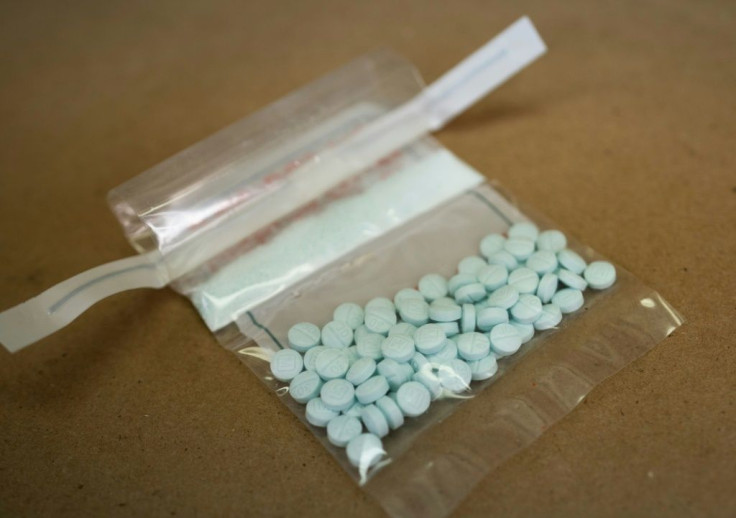Arizona Man Caught Traveling With More Than 22 Pounds Of Fentanyl

KEY POINTS
- An Arizona man was busted in Missouri after being caught with 22 pounds of fentanyl
- It’s one of the largest fentanyl busts in Missouri’s history
- Fentanyl is responsible for the year-over-year increase in American opioid deaths
An Arizona man is facing federal charges after being caught with nearly two dozen pounds of the synthetic opioid fentanyl in St. Louis. At just 18 years old, Daniel Cervantes Felix, of Maricopa, Arizona, is at the center of one of the largest fentanyl busts in Missouri’s history.
ABC affiliate KRCG reports that investigators believe Felix was bringing drugs up to New York from Arizona when he was stopped on Interstate 44 in Missouri. St. Louis County police Detective Andrew Dacey found about 10 "kilo-size bricks" under the back seat of the GMC Sierra pickup truck Felix was driving, the complaint said.
U.S. Attorney Jeff Jensen said in a statement that it was the second-largest seizure of fentanyl in the eastern half of the state. “This amounts to millions of doses of fentanyl — enough to destroy or end the lives of hundreds of thousands of Missourians," he said. Felix is awaiting prosecution.
Fentanyl is a highly potent synthetic opioid that is exponentially more powerful than heroin and pure morphine. The Centers for Disease Control and Prevention (CDC) reports that Carfentanil, the most potent form of fentanyl, is estimated to be approximately 10,000 times more powerful than pure morphine. Fentanyl and other synthetic opioids have been some of the leading drivers of opioid overdose fatality, accounting for over 28,000 deaths in 2017, according to the CDC.
Deaths from fentanyl in Missouri and 22 other states increased from 2016-2017. The Missouri department of heath indicated that the state consistently ranks higher than the national average for opioid fatality.
Non-heroin opioid deaths, including those from prescription drugs like oxycodone, hydrocodone and fentanyl are more than double the number of deaths that result from heroin. Although the increase was smaller from 2016-2017, the problem still threatens the health and quality of life of Missouri residents.
© Copyright IBTimes 2025. All rights reserved.





















